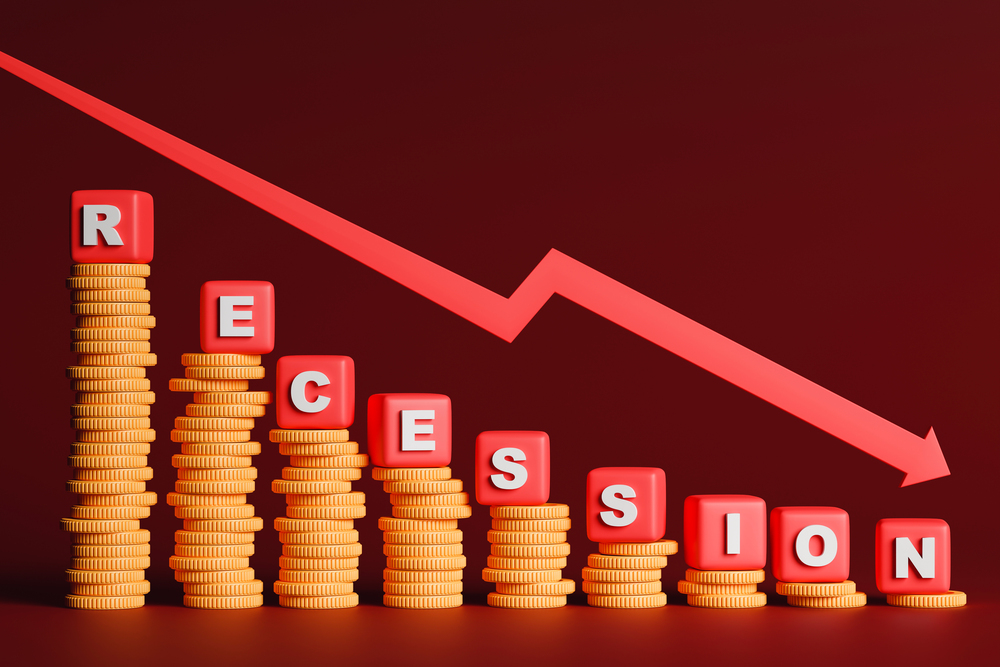A recession is a period of economic decline characterized by a reduction in gross domestic product (GDP) for two or more consecutive quarters. It is typically accompanied by high unemployment, falling consumer spending, and reduced business investment. Recessions can be caused by a variety of factors, including financial crises, oil price shocks, and policy mistakes. They can have serious consequences for individuals and communities, and policymakers often take steps to mitigate their impact through monetary and fiscal policy.
Effects of recession
The effects of a recession can be far-reaching and long-lasting. Some of the most significant effects include:
Job Losses
During a recession, job losses can be significant as businesses struggle and may lay off workers to cut costs. The unemployment rate, which measures the percentage of the labor force that is unemployed but actively seeking employment, tends to increase during a recession.
Some industries are more affected than others during a recession. For example, construction and manufacturing industries may see a significant decrease in employment, while the healthcare and education sectors may be relatively insulated from job losses.
Additionally, some worker groups may be more affected than others. For example, workers with less education, less experience, and lower wages may be more vulnerable to job loss during a recession than those with more education, more experience, and higher wages.
The job losses during a recession can have a ripple effect on the economy, as people with less disposable income will spend less, leading to further economic contraction. It can also lead to a decrease in consumer confidence and an increase in poverty.
It’s worth noting that even when the economy starts to recover, it may take some time for the job market to fully recover and for unemployment to return to pre-recession levels.
Decrease in Consumer Spending
As people lose their jobs or fear for their financial future, they may cut back on spending, leading to further economic contraction. Further, consumers become more cautious with their spending. This can happen for a variety of reasons, such as increased unemployment, which reduces disposable income, and a decrease in consumer confidence, which makes people less likely to make big purchases.
Additionally, during a recession, businesses may also decrease their spending, which can lead to less job security and reduced income for workers. This can further decrease consumer spending as people have less money to spend.
Decrease in Investment
During a recession, investment activity typically decreases as investors become more risk averse and more cautious with their money. This can happen for a variety of reasons, such as a decrease in consumer spending and business activity, which can lead to decreased profits and lower stock prices. Additionally, during a recession, there may be increased uncertainty and volatility in financial markets, which can make investors more hesitant to invest. This decrease in investment activity can further slow down economic growth and prolong the recession.
Decrease in Housing Market
The housing market typically experiences a decrease in activity and values. This can happen for a variety of reasons, such as increased unemployment, which reduces the number of people who can afford to purchase homes, and a decrease in consumer confidence, which makes people less likely to make big purchases such as buying a home.
Additionally, during a recession, there may be a decrease in investment in the housing market as investors become more cautious with their money. This can lead to a decrease in the construction of new homes and a decrease in home values. The decrease in housing market activity can also have a ripple effect on the economy, as the housing market is closely tied to consumer spending, investment, and job growth.
Decrease in Credit Availability
Credit availability typically decreases as financial institutions become more cautious with lending. This can happen for a variety of reasons, such as increased default risk as unemployment and financial difficulties rise, and decreased investment in the banking sector as investors become more cautious with their money.
Additionally, during a recession, the government and central bank may also implement policies to decrease credit availability in order to stabilize the economy. This can include raising interest rates to make borrowing more expensive, or increasing reserve requirements for banks to reduce the amount of money they can lend.
The decrease in credit availability can make it more difficult for individuals and businesses to access the capital they need to make purchases, invest, or expand their operations, which can further slow down economic growth and prolong the recession.
Increase in Government Debt
Government debt can increase as governments take on more debt to stimulate the economy and support businesses and individuals who are struggling financially. This can happen for a variety of reasons, such as increased government spending on social safety net programs, infrastructure projects, and stimulus measures to support consumer spending and job growth. Additionally, during a recession, tax revenues may decrease as economic activity slows down, further increasing the need for government borrowing.
They can also increase debt by decreasing interest rates to encourage borrowing and spending, which can help to stimulate economic growth and create jobs. However, the increase in government debt can also have negative consequences, such as crowding out private investment, increasing the risk of inflation, and putting pressure on future budgets and generations to repay the debt.
Increase in Poverty and Income Inequality
During a recession, poverty and income inequality can increase as economic activity slows down and unemployment rises. This can happen for a variety of reasons, such as a decrease in consumer spending and business activity, which can lead to job losses and reduced income for workers, particularly for low-wage and low-skilled workers. Additionally, during a recession, social safety net programs and government support may not be sufficient to mitigate the negative effects of the recession on vulnerable populations, leading to an increase in poverty.
Moreover, the decrease in economic activity can also disproportionately affect certain groups of people, such as minorities, women, and low-income families, leading to further increase in income inequality. Additionally, the decrease in housing prices, stock prices, and other assets can also disproportionately affect those who have invested in those assets, leading to a decrease in wealth among certain groups of people and an increase in wealth inequality.
Mental and Physical health
Recessions can have a significant impact on mental and physical health. The stress and uncertainty caused by job loss, financial difficulties, and reduced income can lead to increased rates of anxiety, depression, and other mental health issues. Additionally, during a recession, people may have less access to healthcare and other resources that support physical and mental well-being, such as gyms, healthy food options, and mental health services.
Furthermore, people may engage in unhealthy behaviours such as overeating, smoking, and alcohol consumption as a way to cope with the stress of the recession. These behaviours can lead to increased rates of obesity, heart disease, and other physical health problems. The loss of health insurance coverage during a recession also makes it difficult for people to access necessary medical care, leading to a worsening of physical health.
The social isolation and loneliness from the prolonged lock-down and remote working, caused by the pandemic, can also have a negative impact on mental health. This may lead to further exacerbation of mental health issues during the recession.
How to prepare for a recession
Preparing for a recession is important for both individuals and businesses. As such, you need to take some measures because it is still part of an economic cycle that has to take place. Below are a few steps you can take to prepare for a recession:
- Build an emergency fund – Having a savings cushion can provide a financial safety net in case you lose your job or have unexpected expenses during a recession.
- Reduce your debt – High levels of debt can make it difficult to weather a recession, so try to pay off as much as you can before one occurs.
- Diversify your investments – A diversified portfolio can help protect your wealth during a market downturn.
- Consider alternative sources of income – Having multiple streams of income can provide financial stability if one source dries up during a recession.
- Be strategic with spending – Be mindful of your spending and prioritize necessary expenses during a recession.
It’s also important to be aware of the signs of a coming recession and to stay informed about economic trends and news.
How to make money in a recession
Making money during a recession can be challenging, but there are still opportunities you can explore as a person or a business. When it comes to investments, it is important to remember that any investment carries risk. Therefore, it is important to do your research and consult a financial advisor before making any investment decisions. Below are some ways in which you can make money during a recession.
- Invest in real estate
Prices of real estate may also decline during a recession, creating opportunities for bargain purchases. Additionally, rental properties can provide a steady stream of passive income.
- Start a business
Starting a business during a recession can be challenging, but it can also present opportunities. Look for ways to provide goods or services that are in high demand, such as online tutoring or delivery services.
- Offer a service
Offer your skills or services as a freelancer or consultant. Many businesses may look to cut costs by outsourcing work during a recession, rather than hiring full-time staff.
In conclusion, either as a person or a business, it is of utmost important to prepare for a recession. This will help you plan your finances better and invest in more profitable ventures as a business.







